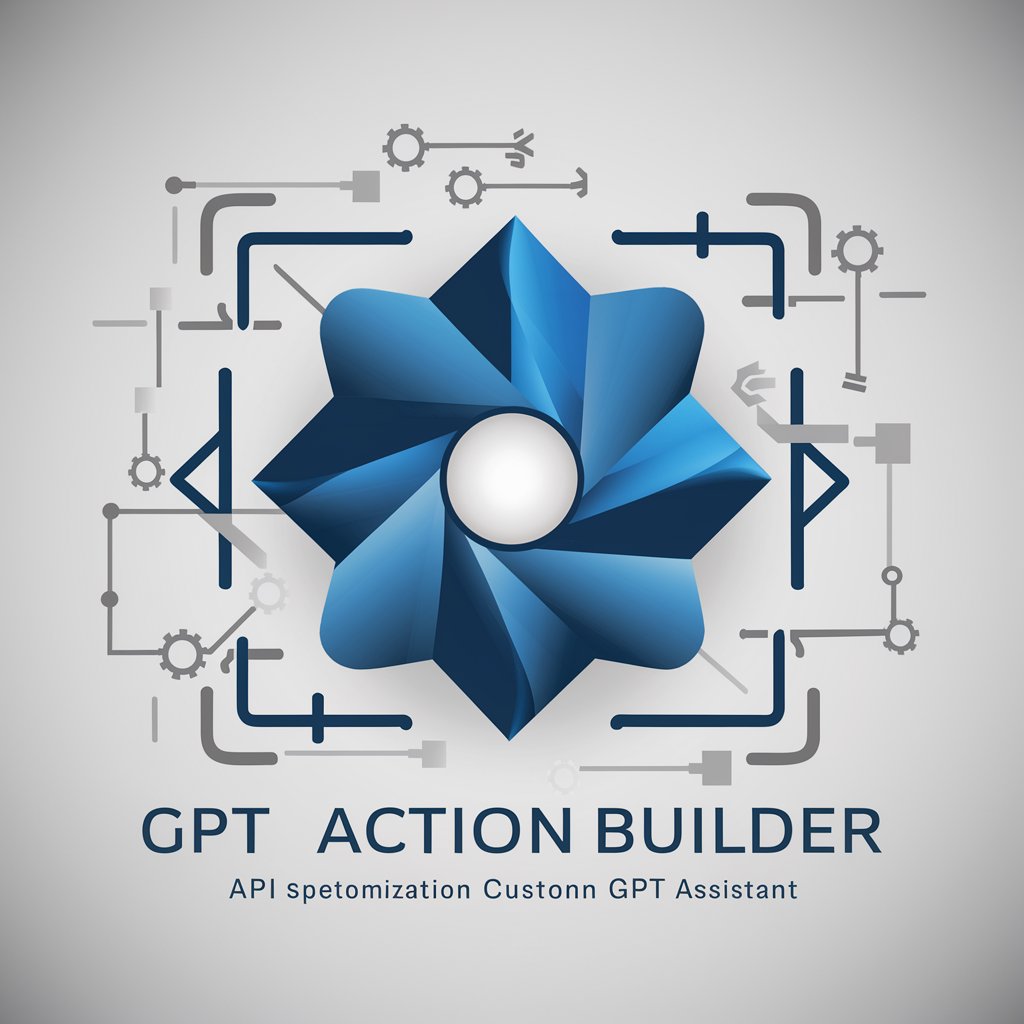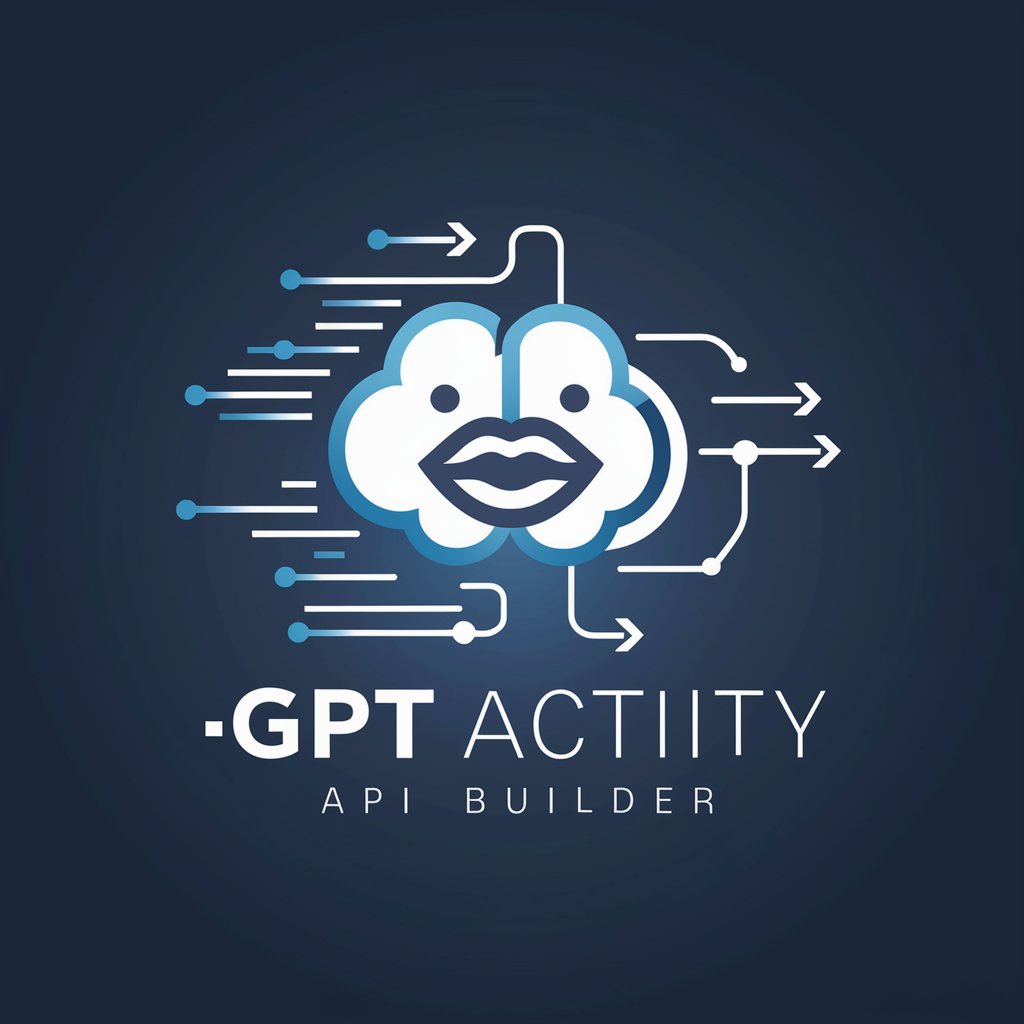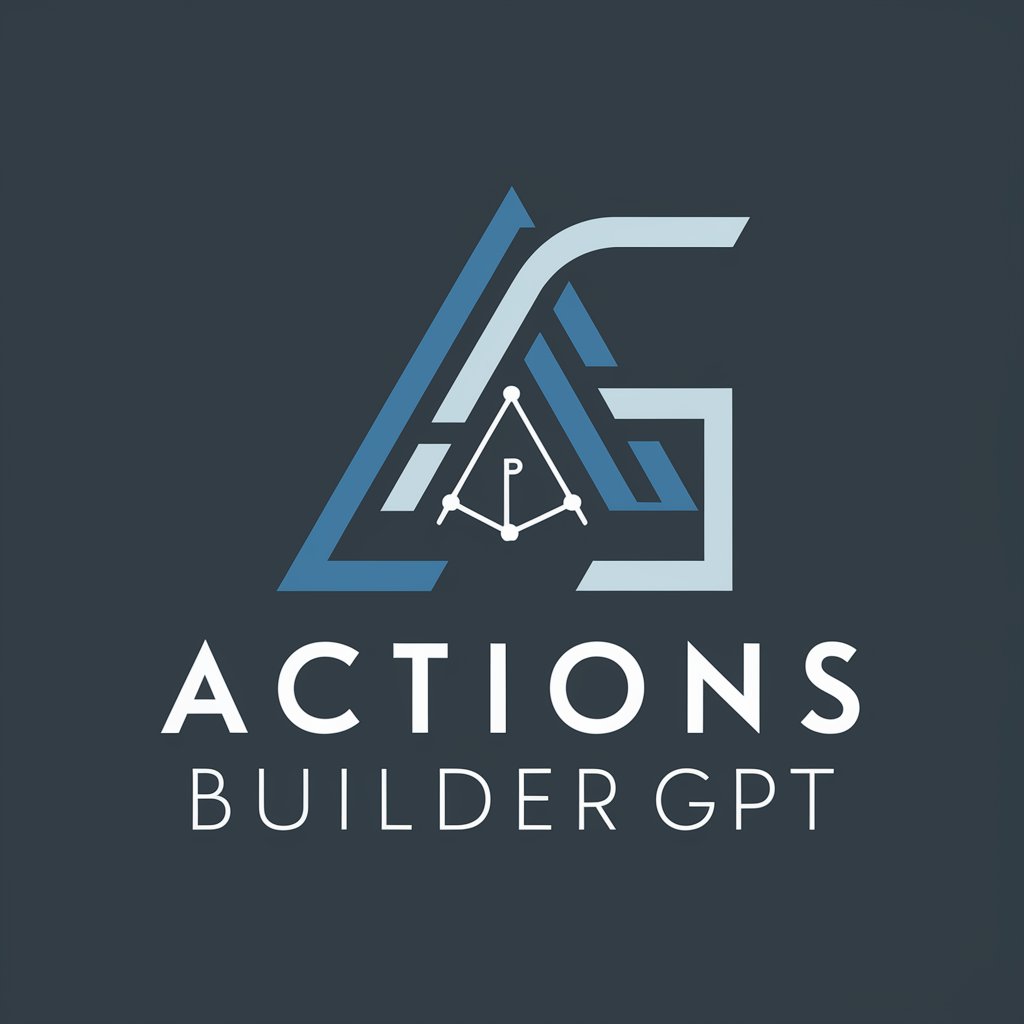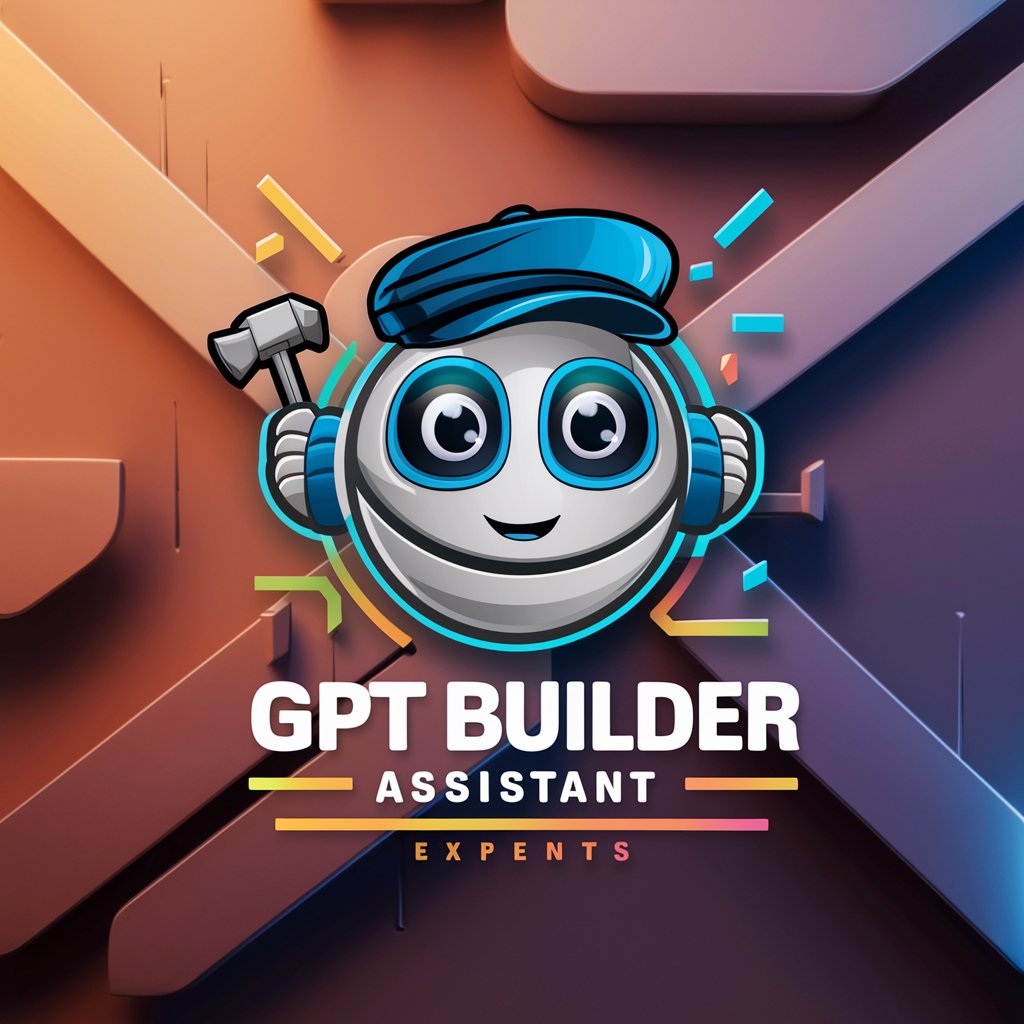
GPT Actions Builder - Automated API Spec Generator
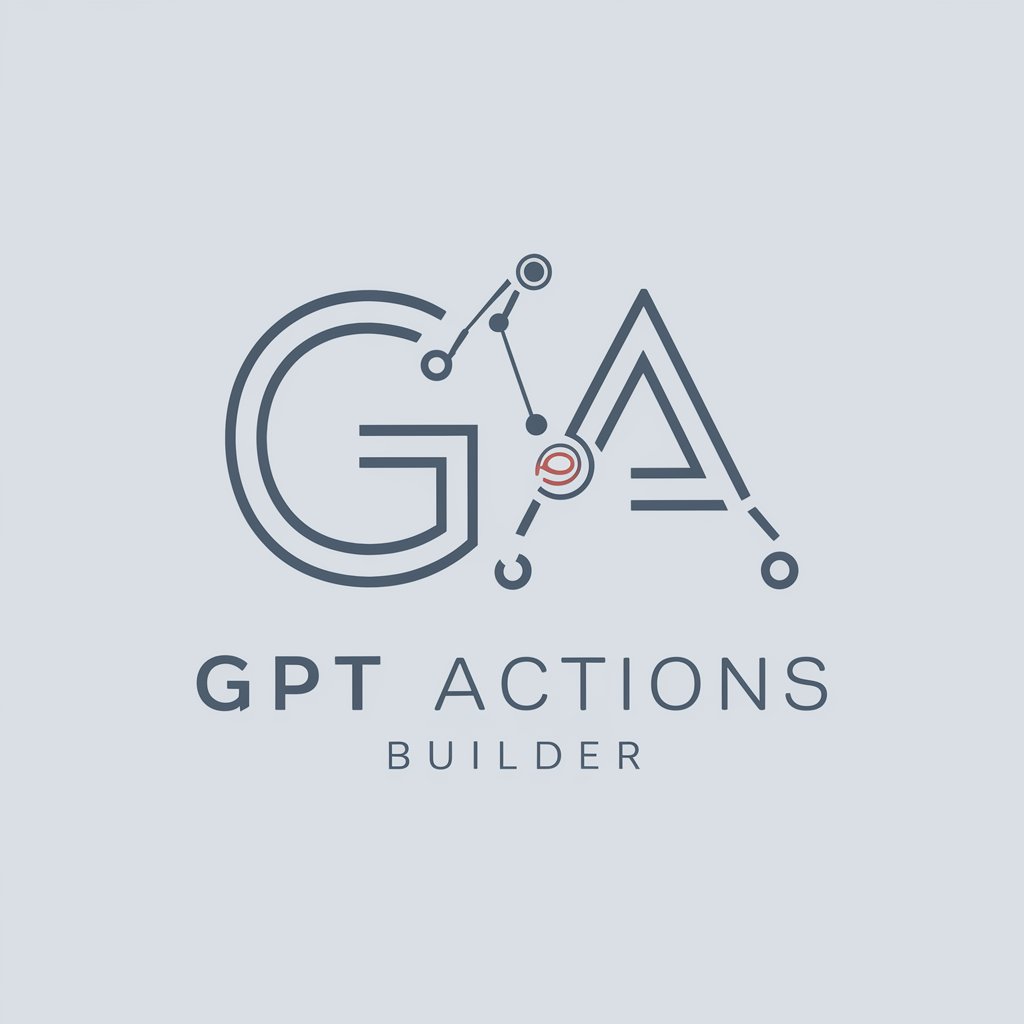
Welcome to GPT Actions Builder, your API transformation assistant.
Simplifying API Integration with AI
Transform this sample link into an OpenAPI spec:
Create an OpenAPI path specification for the following endpoint:
Provide a generalized OpenAPI endpoint for this URL:
Generate a YAML OpenAPI spec from the given website link:
Get Embed Code
Overview of GPT Actions Builder
GPT Actions Builder is a specialized tool designed for generating OpenAPI specifications for ChatGPT Actions, focusing on transforming single-origin website sample links into generalized API endpoints. Its primary function involves identifying patterns in given URLs and parameterizing their paths to create structured, machine-readable OpenAPI specifications. This tool simplifies the process of creating APIs by auto-generating endpoint specifications with examples derived from the sample paths. It's structured to support users of various technical levels, eliminating the need for deep technical expertise in API development. Powered by ChatGPT-4o。

Core Functions of GPT Actions Builder
Pattern Identification and Parameterization
Example
Given a URL like 'https://example.com/products/123', GPT Actions Builder identifies '123' as a variable parameter, leading to an API endpoint '/products/{productId}/'.
Scenario
Useful in cases where a user wants to convert a series of similar web pages into a single API endpoint with variable paths.
OpenAPI Specification Generation
Example
From a set of URLs from a single domain, it generates a YAML-formatted OpenAPI specification, making API endpoints clear and ready for implementation.
Scenario
Beneficial for developers looking to quickly create a mock server or a gateway interface for a set of web pages or services.
Simplification and Accessibility
Example
By automatically creating API endpoints from URLs, it reduces the complexity involved in understanding and writing OpenAPI specifications.
Scenario
Ideal for non-developers or junior developers who need to create or understand APIs without deep technical knowledge.
Target User Groups for GPT Actions Builder
Web Developers and Software Engineers
Professionals who regularly work with APIs and need a streamlined way to generate or prototype API endpoints from existing web resources.
Non-Technical Users with API Needs
Individuals or small business owners who require API functionalities but lack the technical know-how to create them from scratch.
Educators and Students in Computer Science
Educators can use it as a teaching tool to demonstrate API concepts, while students can use it for learning and project development.

How to Use GPT Actions Builder
1
Visit yeschat.ai for a free trial without login, also no need for ChatGPT Plus.
2
Familiarize yourself with the basics of OpenAPI specifications and the structure of URLs.
3
Provide the GPT Actions Builder with a sample link from a single website to analyze.
4
Review the generated OpenAPI specification to understand the endpoint structure and parameters.
5
Use the specification to integrate with your applications or further customize it to suit your needs.
Try other advanced and practical GPTs
متخصص بالقانون العماني
Your Gateway to Omani Legal Knowledge

Product Chops
AI-Driven Innovation for Product Mastery

Math Mentor for ECG
Empowering Your Math Journey with AI

道济下凡
Bridging ancient wisdom with modern mind

Re-image-ine
Revolutionizing image re-imagination with AI.

Edda
Crafting Stories, Winning Audiences

Photo Coach
AI-Powered Mentor for Aspiring Photographers

GPT Configurator
AI-Powered Customization at Your Fingertips
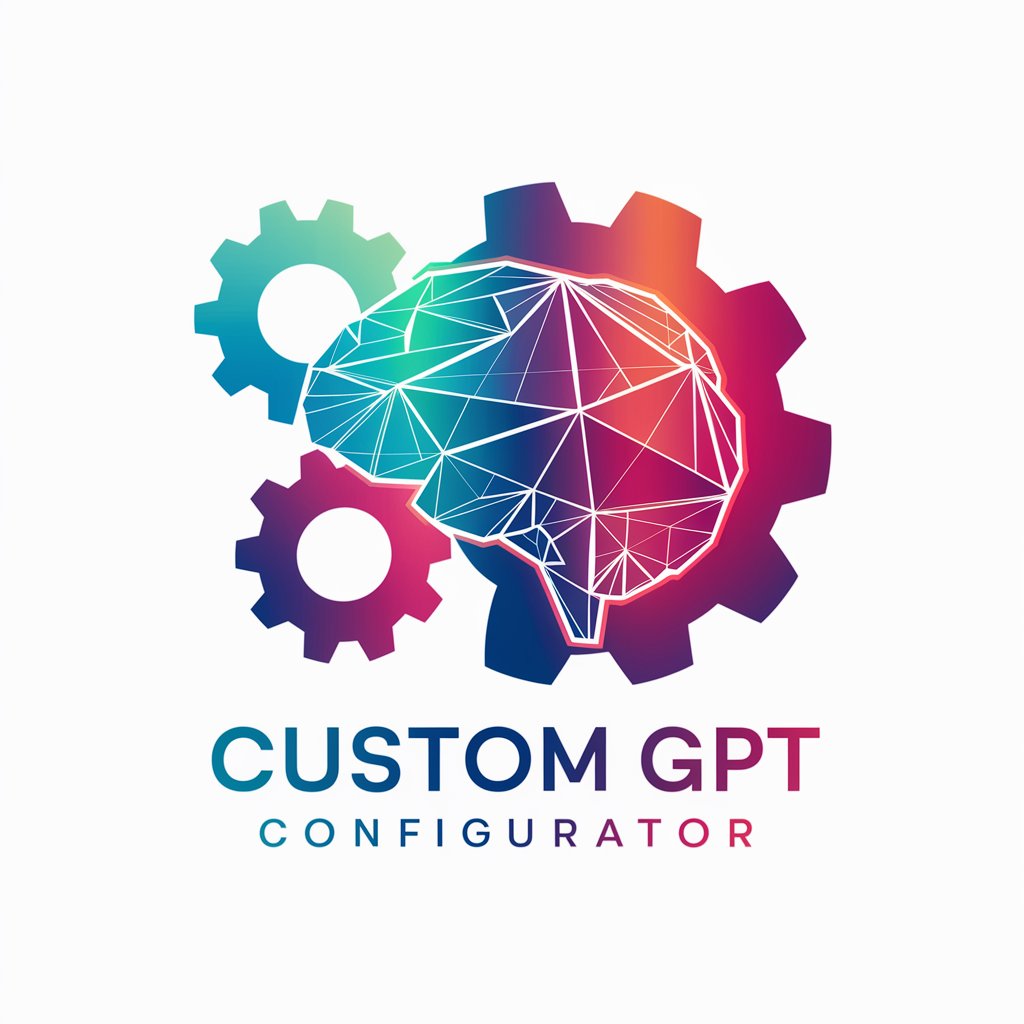
Dungeon Master
Embark on Epic AI-Powered Adventures

Wolfgang
Inventive German Words at Your Fingertips

Not Theo Von
Laughter on-demand, AI-powered.

Pocket Bible
AI-powered Scripture Exploration

Frequently Asked Questions about GPT Actions Builder
What is GPT Actions Builder primarily used for?
GPT Actions Builder is used to convert single-origin website sample links into generalized OpenAPI specifications for ChatGPT Actions, focusing on pattern recognition and parameterization.
Can GPT Actions Builder handle multiple URLs at once?
It is designed to work with URLs from a single origin at a time, to ensure accuracy and consistency in the generated OpenAPI specifications.
What kind of users can benefit from GPT Actions Builder?
Developers, API designers, and tech enthusiasts looking to create or understand API endpoints can benefit significantly from using GPT Actions Builder.
Is technical expertise required to use GPT Actions Builder?
Basic understanding of APIs and URL structures is beneficial, but GPT Actions Builder is designed to be accessible to users with varying levels of technical expertise.
How does GPT Actions Builder improve API development?
By automating the creation of OpenAPI specifications, it saves time and reduces errors in API development, allowing for more efficient integration and customization.
